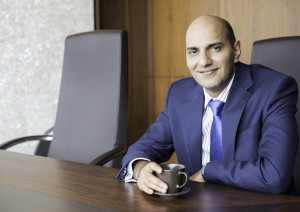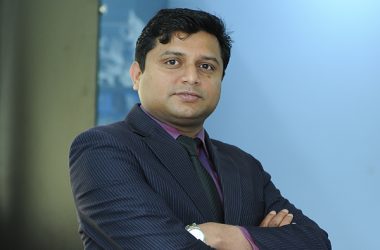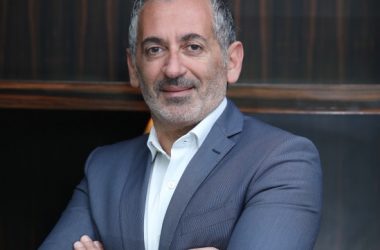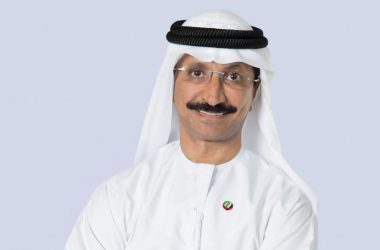
Things were looking up for Mubarik Hussain when he joined Petroserv. He had been headhunted by the Qatari firm that operates in construction, oil and gas and infrastructure, and opportunities were ripe. Still, nothing could have prepared him for the uphill battle into which he would be thrust, being forced to drag the company from the dark ages of technology and business processes, and face bitter resistance throughout the organisation. Joining in April 2013, he was given a mandate to instigate meaningful change.
“When I arrived there was literally no IT in the company,” Hussain recalls. “The data centre was non-existent, the infrastructure dilapidated. Years and years of information was not electronically documented.” Bogged down by a siloed work culture, where seven of Petroserv’s organisations had their own IT department, and misguided shadow IT was prevalent, Hussain knew that technology was going to waste. “We were using about 5 percent of the capability of our systems,” he says. “There was a lack of technical and professional skills, and the senior management had no confidence in IT’s nous or delivery of data. We were constantly being attacked; and this was incredibly time-consuming and financially costly.” Following an arduous auditing process, in which Hussain considered outsourcing certain functions, he eventually decided that the company would simply have to “start from scratch” in building its IT.
“I proposed that we wipe everything out, and begin serious civil works,” he says. “We needed a new data centre – new cabling, SAN storage, blade servers, firewalls, core switches, edge switches. We would even be making changes as far as endpoints, desktops and laptops.” The company would make a huge leap to a scalable, virtualised environment, which Hussain says was “lego-like”. “I had never had to tackle change on this scale before; we would be moving from the worst environment and technologies to the best in one jump,” he says.
Between April-December 2013, Hussain oversaw the rebuilding process of Petroserv’s data centre, with fresh hardware, software and virtualised VMware servers being introduced. “We engaged suppliers, services, hardware, cabling and data centre firms, and made sure we thoroughly laid out our vision and plan,” he says.
By December 2013 – Hussain’s deadline for completing the update of the company’s decrepit IT – the necessary changes had been completed. Nine months later, six of the group’s companies had been migrated into the fresh IT infrastructure. The move to a virtualised environment meant only 10 percent of the initial quantity of servers were needed, while enhanced firewalls and switches were providing better security and networking capabilities. Where the company had previously incurred frequent downtime, Hussain says things now ran smoothly “24/7.”
However, he was to face yet more hurdles in this transitional period. “A new Corporate MD joined in the summer of 2014, and he wanted to transform the business,” he says. “He recognised the success we’d had in IT, and asked me to oversee another development in terms of business processes and best practices. Best practices are designed to prevent problems, but considering they were not there in the first place, the way projects were managed needed to change.” October 2014 arrived, and yet again Hussain had a brief to usher in new advancements to the company.
A key element to the extensive changes was the rebranding and reinvention of Petroserv on a number of levels. “On a general level we had to shift to a maturity model,” Hussain says. “This wasn’t just about technology and cleaning up data, but also people, business processes and how we related to our clients.”
In keeping with Petroserv’s archaic IT systems, its staff were unreceptive to Hussain’s suggestions to change, which were met with hostility. “People don’t like systems to be changed,” he says. “When an IT guy comes in and tells them to do their job differently, their initial response is ‘What does he know about construction?’ Many of them will seek to undermine and subvert you.” In spite of the resistance, Hussain made headway in getting staff on board. “We’ve engaged them with training and workshops, which we’ve always emphasised are designed to help them, to make their jobs easier,” he says. “In the same way that we use cars and calculators for easier results, we also need to use IT. Once you get people on board, momentum gathers.”
Hussain says his strong working relationship with the company CEO has not only provided a strong platform for change within IT, but has been a vital endorsement in his fight to prove that the overhaul of processes was necessary. “Although I can provide elements that the CEO wants through the use of IT, he is the person who understands the business better than anyone,” Hussain says. “I don’t understand a great deal about mega projects, oil and gas and construction, so his support has been a cornerstone in helping me turn things around. It’s vital that we have mutual trust to get the job done.”
At the time of writing, Hussain is still completing the final stages of his business transformation initiative. The process, although promising immense benefits for Petroserv, has been testing for Hussain. “I’ve faced a lot of pressure to ensure I delivered certain aspects immediately,” Hussain says. “There’s been a lot of ‘Do this in two months’ ‘Do this by next month’. I’ve had many sleepless nights, and have worked countless 100 hour weeks.” In addition, he has had to develop thick skin to a number of venomous colleagues. “When people feel their authority – and what they know – is being threatened, they can be nasty,” he says. “Quite often, any attempt to instigate change in an organisation pitches you in a lonely battle.”
As the initiative draws to a close, Hussain is anxious for its completion, but takes tremendous satisfaction from his efforts. “The company is already unrecognisable from when I joined, and in a few months it will be even more different,” he says. “At times I think it would have been easier to not have done any of this; it has been incredibly challenging. Having said all that, if things come off as planned I will be immensely proud, and things will certainly be looking up.”





